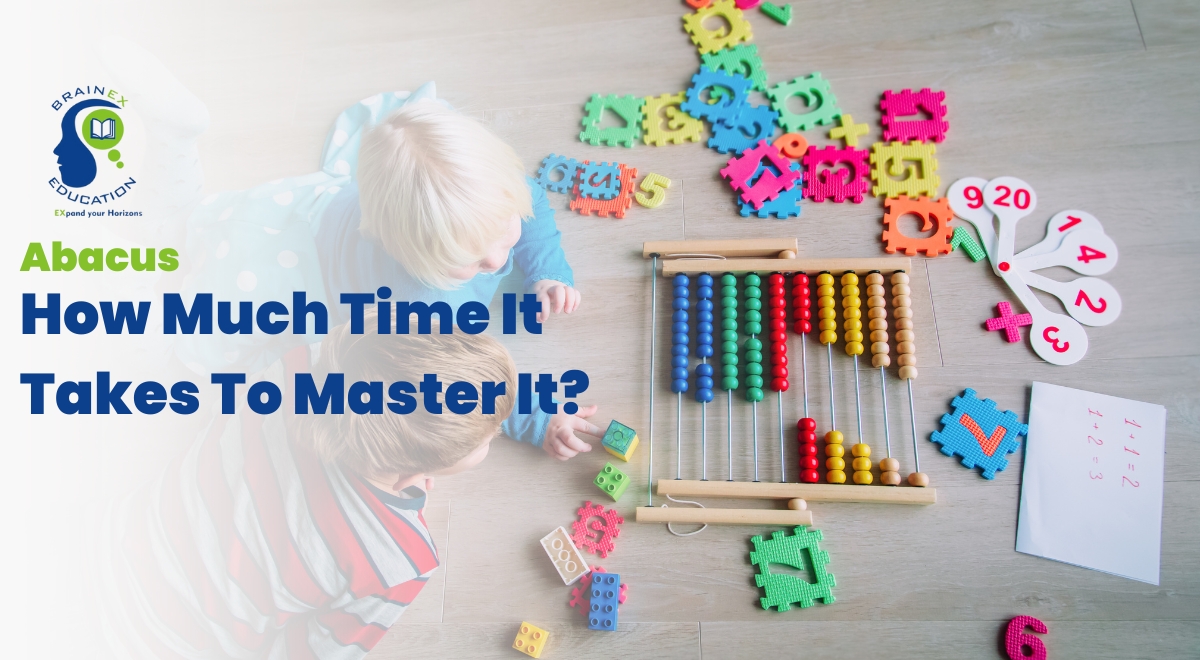Blogs Details

Abacus- How Much Time It Takes To Master It?
Did you heard about Abacus and how it helps master mental calculations before? Abacus is a mental arithmetic technique that uses beaded rods to perform quick and efficient calculations. Learning abacus involves not just mastering the instrument, but also boosting your mental capacity. The time it takes to excel abacus depends on your age, learning capacity, dedication, knowledge and practice.
In this blog, we'll discuss about abacus, what’s involved in it and how long it takes to learn.
Basics Of Abacus
To start with, learners are introduced to the abacus's structure, its beads, and positional significance that usually take a week to grasp. After the basics are understood, it’s time to take on complex learning, like arithmetic operations of addition and subtraction. All these are performed using beads that represent numbers.
Learners progress step by step to doing complex calculations involving multiplication and division which happens after a deeper awareness of abacus-specific techniques and strategies. Depending on the learners’ age, acquiring the multiplication and division skill may take several months.
Once a learner is familiar with the fundamental operations, students can progress to strategies that allow for quick computations. This includes practising mental calculations using the visual representations of the abacus. It usually takes six months to a year or more of constant practise to become proficient in these techniques.
Factors That Affect Your Abacus Learning
If you are new to abacus learning, the factors that determine your learning includes aspects, such as fine-tuning abilities, working with greater numbers, and mastering decimals. The time it takes to attain the best level of abacus learning might range from one to two years or more, depending on the individual's devotion and practise regimen.
The following aspects influence the abacus learning time:
· Prior Knowledge: People who have a strong mathematical foundation may be able to learn abacus principles more quickly.
· Learning Environment: Formal instruction, classes, or internet resources can help to speed up the learning process.
· Dedication to Practice: Consistent and focused practise accelerates skill improvement.
· Learning Style: Visual learners may find it simpler to master abacus procedures, but others may prefer hands-on practise.
· Natural Aptitude: Some students may flourish because of their better mathematical skills.
Learning abacus might take weeks or years, depending on the learner's devotion, practise consistency, and natural ability. The abacus promotes mental agility and cognitive ability in addition to mathematics. Adopting a growth mindset and committing to consistent practise are critical to mastering this ancient technique. While there is no set timescale, the benefits of abacus mastery make the journey worthwhile.
